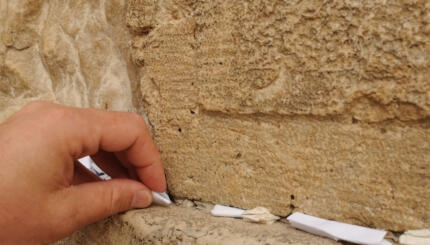Although it might be awkward to articulate the breadth and depth of human qualities we aspire to, it is not difficult to speak our high dreams for our children – that they be loving and compassionate, serene, joyful, full of wonder… And wanting these admirable and sustaining qualities for our children, we know that to imbue them we must emulate them. In other words, we must exemplify the facets of self we wish to promote.
As below, so Above.
Our Kabbalistic (mystical) tradition teaches that God, like a human parent, is made up of discrete qualities available as touchstones to be emulated as we shape ourselves into the very best versions of who we can become. The apple doesn’t fall far from the tree; we look to our divine parent to learn how to be human.
This week’s Torah portion invites us to mark the seven weeks between Passover and Shavuot, known as the Omer. And since the Kabbalistic teachings of the Middle Ages, Jews, world over, have marked these weeks leading up to our commemoration of the Revelation at Sinai by imagining and emulating one divine quality each week.
These seven divine qualities are expressed as paired energies that stand in a balanced relationship with one another, with middle points to integrate them. In the first weeks we pondered free flowing loving-kindness – in ourselves, in God, and in the world, then, the temperance of boundaries, and a middle ground that might be thought of as a love that neither smothers nor spoils.
Now we contemplate and try to emulate a second dyadic pair of energies, balancing victory — and all that is associated with progress, success, promotion of causes and ideas, and perpetuation of ourselves, humanity, and our world — with the attribute of gratitude.
As the festival of Shavuot approaches, we contemplate a balance between generative power and receptive humility, and look to the kingdom of earth to see God revealed, right here and now, in the the eyes of every living creature, and in every human action.
The exercise asks us to feel what it is to open and flow as Spirit flows freely, and to construct order as Creation constructs bounded structure and order, to be big, embodying power in it’s best expression, and to be small, aware of our place in the universe, humble in the face of the bounty with which we are gifted.
The exercise asks us to embrace the fundamental truth that life is a dialectic and that we are always expanding or contracting in response to the circumstances of life.
The exercise asks us to consider a complex God who exemplifies the splendor of our own complexities. Our divine model moves between poles of expression – sometimes restrained, sometimes flamboyant, always flexible for the sake of answering the disparate calls of life and for the sake of a wholeness that truly incorporates all potentialities.
Like our god, we are prismatic beings, and all of our facets are holy.
Torah
Pronunced: TORE-uh, Origin: Hebrew, the Five Books of Moses.



